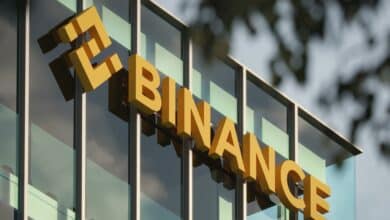What is Arbitrage Trading and How Does It Work?

Introduction
Investing is a financial activity that allows users to create more profits using their savings. In general, investing is a method that can be used to increase the personal equity of an individual without the use of any additional labor. Therefore, investors have been using different techniques to make profits from the market.
Over the years, techniques like Arbitrage have gained popularity among traders, and now the same option is also available for cryptocurrency investors.
What is Arbitrage Trading?
Arbitrage Trading is an investing method that allows investors to take advantage of the price difference for the same commodity or product in different markets. It means that the investors purchase a new product from a market where its spot price is low and sell it in a market for a higher price.
In this manner, Arbitrage traders can create profits by using their savings or capital income to purchase a lower-priced item from a market region. Arbitrage trading also requires the investors to work out other expenses, such as maintenance and logistics costs, beforehand.
How does Arbitrage Trading Work?
For Arbitrage Trading, here are the three most important conditions that should be present in the market:
- The asset under question for arbitrage trading should be trading at different price ranges in different markets.
- The cash flow for the arbitrage trading assets should not trade at the same price levels.
- The asset for arbitrage should not trade at the same price at present as its estimated future cost and remain discounted following a risk-free interest rate.
Origin of Arbitrage Trading
The first formal mention of Arbitrage Trading can be traced back to 1704. The word Arbitrage is derived from French that stands for referee or umpire in the French tribunals. In the 18th century, Mathieu de la Porte composed a document treatise that was for considering different exchange ranges for arbitrage trading.
The treatise also dealt with finding out the most profitable market places for issuance and settlement of bills of exchange.
On the other hand, the Arbitrage Pricing Theory, or APT, was introduced as an alternative to the Capital Asset Pricing Model CAPM by American real estate developer and philanthropist Stephen M. Ross in the 1970s. CAPM is used to explain how different financial market prices their products and work out their intrinsic risk for capital investment.
On the other hand, APT deals with an asset pricing model based on a multitude of factors and identify the assets in markets that are currently mispriced.
Types of Arbitrage Trading
Arbitrage Betting
Arbitrage betting or sure bets is a type of arbitrage trading that occurs from the difference of price estimation placed by bookmakers. The arbitrager, or better, in this case, can turn a profit by placing one bet on the outcome with different bookmakers or companies.
In this manner, the better can end up making a profit regardless of the outcome. It is also known as sports arbitrage, and the bettors are known as arbers in slang among bookmakers.
Covered Interest Arbitrage
Covered Interest Arbitrage is a trading strategy where the investors are trying to profit from multi-regional trading based on different interest rates. In most cases, arbitragers use a forward contract to maintain their exchange rate risk. In simpler words, the goal of arbitrageurs is to earn profits by calculating the difference in interest rates in two countries.
Volatility Arbitrage
Volatility Arbitrage is a type of investment option that allows the trader to take advantage of the price volatility of a given asset. This type of arbitrage is classified as a type of statistical arbitrage technique. The trades are likely to use options trading and delta neutral portfolio.
Political Arbitrage
Political Arbitrage is where the traders keep an eye on the market changes based on political changes in a country. However, this type of trading can have legal hindrances such as insider trading and conflict of interest breach that can land the investors in hot water with financial regulators.
Triangular Arbitrage
Triangular Arbitrage is also known as cross-currency arbitrage. The traders can work out the profitable difference between three currencies or legal tenders in the Forex exchange. This also involves zero-risk profits that generate from the discrepancy on account of cross-exchange rates.
Fixed Income Arbitrage
Fixed income Arbitrage contains a multitude of market-neutral strategies that allow the investors to generate profits from fixed-income securities or other investment contracts. This revolves around purchasing fixed-income security from one market for a lower price and generating profits by selling it to another marketplace at higher prices.
Risk Arbitrage
Risk Arbitrage occurs during a major corporate event such as mergers and acquisitions. In this type of arbitrage trading, the investors are placing their bets on generating profits from the company evaluation by acquiring it at a lower price and converting it into a high-value enterprise. The investor who undertakes Risk Arbitrage exploits the event-driven investing opportunities, and they are called arbitrageurs.
Uncovered Interest Arbitrage
Uncovered Interest Arbitrage is also a type of investing strategy that revolves around taking advantage of interest rate discrepancies between two countries. However, unlike Covered Interest Arbitrage, this type of trading does not use hedging foreign exchange risk by using forward contracts.
Statistical Arbitrage
Statistical Arbitrage is a short-term trading model that allows investors to generate profits using mean reversion. Mean reversion is an investment theory that postulates that the prices of an investment asset drawback to its average cost after a specified period.
With Statistical Arbitrage, the traders can hold a large number of assets for a limited period ranging from seconds to days. The arbitrageurs in this method use mathematical calculations, computational data, and trading aggregators to estimate the precise selling and buying windows.
Arbitrage Trading in DeFi
DeFi stands for decentralized finance, and arbitrage trading in cryptocurrencies started as soon as cryptocurrency exchanges started to emerge. Cryptocurrency investors are free to choose from any of the aforementioned arbitrage trading techniques for their portfolios.
It is important to note that cryptocurrency exchanges are trading on a worldwide scale. The price of a particular cryptocurrency in an exchange platform can differ based on different factors. Therefore, many cryptocurrency exchanges offer investors built-in protocols to perform Arbitrage Trading like FTX and Kraken, etc.
Arbitrage Considerations in DeFi
Here are the main factors that investors should keep in mind when they are working with cryptocurrency or DeFi arbitrage:
Transaction Costs
The most important factor to take into account before conducting cryptocurrency arbitrage is to work out the total transaction cost. The investors who are just getting started might only keep an eye on different cryptocurrencies based on their spot prices.
However, the total profit from the arbitrage can turn into dust if the investors have to burn it all on gas fees among different platforms.
Trading Volume
Trading Volumes can make or break the arbitrage traders. When trading volume increases, it means that the market liquidity is abundant, and therefore the chances of trade conduction also increase simultaneously.
Slippage or Risk Management
Price Slippage is an event when the expected entrance or exit price for an arbitrage trade happens. Therefore, the investors must conduct sufficient research before initiating any arbitrage trade and take into account all variables that can impact the market.
Types of Arbitrage Trading in DeFi
Since cryptocurrencies are unique from standard securities and stock trading, there are different types of arbitrage trading models present in DeFi. Some of the most popular and profitable arbitrage trading techniques in DeFi are given as under:
Exchange Arbitrage
Exchange Arbitrage is the most well-known and most common type of arbitrage trading in DeFi. It is important to note that cryptocurrencies are not limited to one region or country. Anyone hailing from any part of the world can purchase a DeFi coin such as Bitcoin etc.
Therefore, the ideal option for cryptocurrency arbitrageurs is to find the price discrepancies in different cryptocurrency exchanges. The investors can check the order books of different CEXs or DEXs to calculate the price differences.
Funding Rate Arbitrage
Funding Rate Arbitrage is a type of cryptocurrency trading where investors can make profits by computing the difference between spot prices and futures contracts. For example, investors can purchase some Bitcoins.
Now, they can hold their Bitcoin reserve and hope that it keeps increasing in value over time.
However, Bitcoin prices are subject to changes; therefore, the investor can hedge its prices by selling a futures contract for the same value as the Bitcoin purchase price. If the funding rate for the futures allows the investor to get a 5% profit, it means that the investor was able to generate a profit without facing any risk against their Bitcoin reserves.
Triangular Arbitrage
Triangular Arbitrage is a type of trading technique that allows investors to generate profits by trading three different types of cryptocurrencies and exchanges. It revolves around traders purchasing the first cryptocurrency from exchange A and then selling it to purchase the second type of cryptocurrency from exchange B.
The cycle is complete when the traders exchange the first type of cryptocurrency with the second type on exchange A. For example, a trader can purchase Bitcoin with BNB, then use Bitcoin to purchase Ethereum and convert ETH in BNB again to generate a profit.
Regulations around DeFi Arbitrage Trading
For every individual cryptocurrency investor, it is smart to ask the question Is DeFi Arbitrage legal? For the cryptocurrency traders present in the United States, DeFi for coins like Bitcoins is legal.
However, cryptocurrency investors hailing from different parts of the world should check with the financial regulators in their respective countries if the cryptocurrencies they are choosing for arbitrage trading are legal or not. Even in countries like the USA, Bitcoin and other DeFi currencies are largely unregulated.
Another factor to consider related to the legislation of DeFi Arbitrage is the tax levy. It is a good question to ask if the cryptocurrency arbitrage income you are generating in your country is taxed or not.
In the USA, IRS has categorized cryptocurrencies as property, while the Securities and Exchange Commission has declared them as a form of digital stock.
Meanwhile, Commodity and Futures Trading Commission has listed cryptocurrencies as a form of commodity. It is best to hire a financial consultant or legal expert to get clarity on tax implementation on cryptocurrency arbitrage in advance.
Opportunities Offered by DeFi Arbitrage Trading
A good observer is going to postulate the question of why arbitrage trading opportunities occur in the DeFi ecosystem.
It is important to note that cryptocurrencies are borderless, and therefore it seems like an odd idea that crypto traders can use arbitrage trading techniques in such a universal market. To answer this important question, here are some of the key factors that define the opportunities for arbitrage in DeFi:
Local Regulatory Restrictions
Local regulations can play an important role in creating a massive price discrepancy for different cryptocurrencies in various exchange markets. Countries can control the flow of their native legal tender in foreign markets.
For example, Kimchi Exchange is subject to massive regulatory restrictions by the financial regulators of South Korea. The capital control for cryptocurrency investors is limited. Furthermore, foreign investors are not allowed to participate in the Kimchi trading platform.
Therefore, the forces of macroeconomics can create a sizeable price gap between the cryptocurrencies present on the Kimchi exchange and the same tokens trading on foreign-based exchanges such as Coinbase, etc.
Massive Price Volatility
Cryptocurrencies are intrinsically subjected to massive price volatility. It means that the prices of any cryptocurrency can move up or down by an average of 20% change within 24 hours. The sudden movement of the market can take away the ability of the traders to dissolve their positions rapidly on account of a lack of liquidity.
For example, when the price of a cryptocurrency X decreases, the investors will try to sell their positions. However, if the exchange is illiquid, the price decline is going to increase further, and it will generate more arbitrage trading opportunities for the investors with other cryptocurrency exchanges that contain better liquidity.
Transaction Costs
Transaction Costs in DeFi can keep increasing and decreasing depending on the trading volume and other market factors.
Therefore, an arbitrage opportunity for the investors can become available if the spot price difference grows larger on account of massive transaction costs. Investors can purchase cryptocurrencies with lower prices that have lower trading volume and transaction costs and sell it for a profit in exchange markets with higher trading volumes.
Risks Associated with Arbitrage Trading
Funds
In most arbitrage trading options, the traders should have a sizeable fund to purchase cryptocurrency reserves. Arbitrage trading profit margins are considerably low concerning individual cryptocurrencies.
Therefore, investors who are looking to turn a significant profit must purchase and sell cryptocurrencies in colossal quantities. Therefore, arbitrage traders need to possess massive investment capital, and they must also be prepared to find suitable liquidity.
Trading Bots
The best way to turn up a profit with an arbitrage option in DeFi is to use trading bots. Investors who have access to trading bots can keep an eye on the price differences in more exchange markets with little effort.
They can also find the best liquidity pools and keep track of the reserve allocations in digital wallet accounts. Therefore, investors who do not have the technical skills to deploy or generate trading bots can fall behind in DeFi arbitrage.
Fiat Currency
Many countries are monitoring their fiat currency outflow in foreign markets. Therefore, unsuspecting investors can get stuck with their arbitrage trades if they are unable to purchase cryptocurrencies from foreign exchanges on account of local fiat restrictions.
Crash
Arbitrage trading usually thrives in a volatile market. However, if the volatility of a cryptocurrency spins out of control, it can create issues or losses for the DeFi arbitrage traders. In some cases, cryptocurrency exchanges can experience massive losses and file for bankruptcy.
It can mean that the entire trading portfolio of the DeFi arbitrageurs can sink without warning. If the traders are using bots, they might not be able to stop the buying process, while the bots will be unable to sell the currencies for a profit in the crashed exchange market.
Conclusion
Arbitrage Trading is a great trading option that is ideal for volatile investment options such as cryptocurrencies.
However, the investors must conduct in-depth research before generating any new positions. It is ideal to start small and not try to invest above the risk cushion in the beginning. Some investors also use mirror trading when they are getting started to get an idea of the best DeFi arbitrage techniques before working out individual trade paths.
Tokenhell produces content exposure for over 5,000 crypto companies and you can be one of them too! Contact at info@tokenhell.com if you have any questions. Cryptocurrencies are highly volatile, conduct your own research before making any investment decisions. Some of the posts on this website are guest posts or paid posts that are not written by Tokenhell authors (namely Crypto Cable , Sponsored Articles and Press Release content) and the views expressed in these types of posts do not reflect the views of this website. Tokenhell is not responsible for the content, accuracy, quality, advertising, products or any other content or banners (ad space) posted on the site. Read full terms and conditions / disclaimer.







